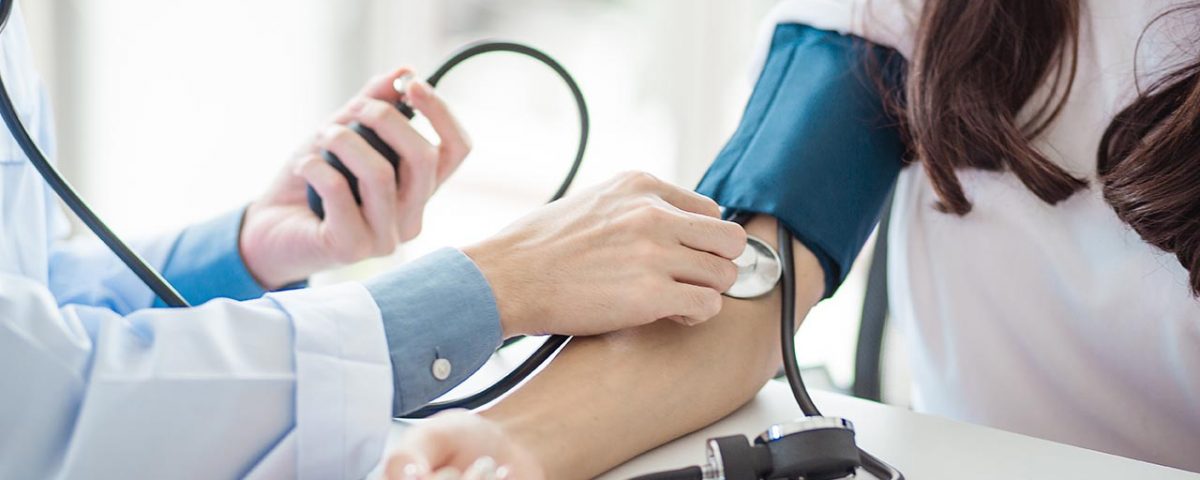While many believe that the occasional drink isn’t a huge cause for concern, some people have underlying health conditions that can be exacerbated by even the smallest bit of alcohol.
One of these conditions is hypertension, commonly known as high blood pressure. If you’re a frequent drinker yourself, you may have wondered at some point, “does alcohol affect your blood pressure?” People with alcohol use disorders or people who suffer from heavy drinking may have also come across the potential risk of high blood pressure as a result of their habits. Our drug rehab in Illinois explains the relationship between alcohol and high blood pressure to better understand the nature of this condition.
What Exactly Is Blood Pressure?
Many people throw the term “high blood pressure” around without being able to explain what it is. Otherwise known as hypertension or HBP, high blood pressure is when the force of your blood pushing against the walls of your arteries is consistently too high. In order to function properly and survive, your organs and tissues need the oxygenated blood that your circulatory system sends throughout your body. When the heart beats or pumps, it creates pressure that pushes the blood through your blood vessels, such as arteries, veins, and capillaries. This is blood pressure.
If you’ve ever had your blood pressure taken, you have probably seen two sets of numbers. The top number is your systolic pressure, which occurs when blood pumps out of the heart and into the arteries. The second number is your diastolic pressure, which is created when the heart rests between beats. Together, these numbers form your blood pressure. When these numbers are above the set norms of 120/80 mm Hg, you may be diagnosed with high blood pressure.
Effects of High Blood Pressure
The primary way that high blood pressure affects your health is by increasing the workload of the heart and blood vessels. Over time, the force and friction of this pressure can damage the tissues inside of your arteries, causing problems like LDL cholesterol or “bad” cholesterol. LDL cholesterol is known as “bad” cholesterol because it refers to the collection of plaque in your arteries, which can create tiny tears along the artery walls. The more plaque builds up, the narrower the insides of the arteries become, making it more difficult for blood to get through, thus increasing blood pressure. This can ultimately lead to conditions like arrhythmia (changes in electrical impulses in the heart), heart attack, and stroke.
Some additional dangers of high blood pressure include:
- Thickened and stiffened muscular walls of ventricles, which can contribute to heart failure
- Damage to the inner lining of the muscular arteries, leading to atherosclerosis
- Heart failure, a progressive condition in which the heart muscle is unable to pump enough blood throughout the body
- Bursting or clogging of blood vessels in the brain, leading to stroke
- Strained vessels in the eyes, affecting vision
- Enlarged heart, making it difficult for it to supply blood to the body
- Damaged arteries can become blocked, causing a heart attack
- Damaged arteries around the kidneys, preventing it from filtering blood (kidney disease/failure)
- Sexual dysfunction in men or decreased libido in women
How Does Drinking Alcohol Affect Your Blood Pressure?
If you or someone you know suffers from high blood pressure, then you may know how important it is to monitor what you eat. While many people are advised not to eat too many cheeseburgers or have too much sugar, there’s also the matter of drinking. Can alcohol affect your blood pressure? Yes, it can. Drinking too much alcohol can raise your blood pressure to dangerously high levels, increasing your risk of experiencing the side effects mentioned above.
Although having more than three drinks in one sitting can temporarily increase your blood pressure, chronic or repetitive binge drinking can lead to long-term increases. Binge drinking refers to having four or more drinks within two hours for women and five or more drinks in one hour for men. Heavy drinking is when a woman has more than three drinks a day and when men have more than four. Many people who become dependent on drinking usually undergo an alcohol detox to manage their withdrawal symptoms and other health issues.
The relationship between alcohol and blood pressure problems was first discovered in 1915.1 However, how alcohol raises your blood pressure is unclear. There are many ways that this could happen, including:
- An imbalance of the central nervous system
- Impairment of baroreceptors (blood cells near the heart that pertain to blood volume and pressure)
- Increased cortisol levels
- Enhanced activity in the sympathetic system (part of the nervous system that produces adjustments like sweating when the temperature rises and releases hormones like catecholamines - epinephrine and norepinephrine - to accelerate heart rate)
- Increased responsiveness of a blood vessel to specific stimuli (vascular reactivity)
The effects of drinking alcohol with high blood pressure include increased risk of problems like heart failure, stroke, heart attack, atherosclerosis, vision problems, enlarged heart, kidney failure or disease, and even sexual dysfunction. Recent studies have shown that chronic alcohol abuse (more than three drinks per day or more than 30 grams of alcohol) can increase your risk of high blood pressure and cardiovascular disease. Even people who drink in moderation may experience high blood pressure. If the frequency of their drinking increases, then the likelihood of high blood pressure does as well.
For people with alcoholism, high blood pressure is one of the many issues they face. Alcohol can affect your skin, muscles, heart, brain, and everything in between. Addiction, regardless of the substance in question, can also impact your relationships, career, and finances. If you find yourself drinking more than you used to or struggling to control your alcohol consumption, it’s time to get help. Call Banyan Treatment Centers Heartland today at 888-280-4763 to learn more about our alcohol rehab in Illinois.








